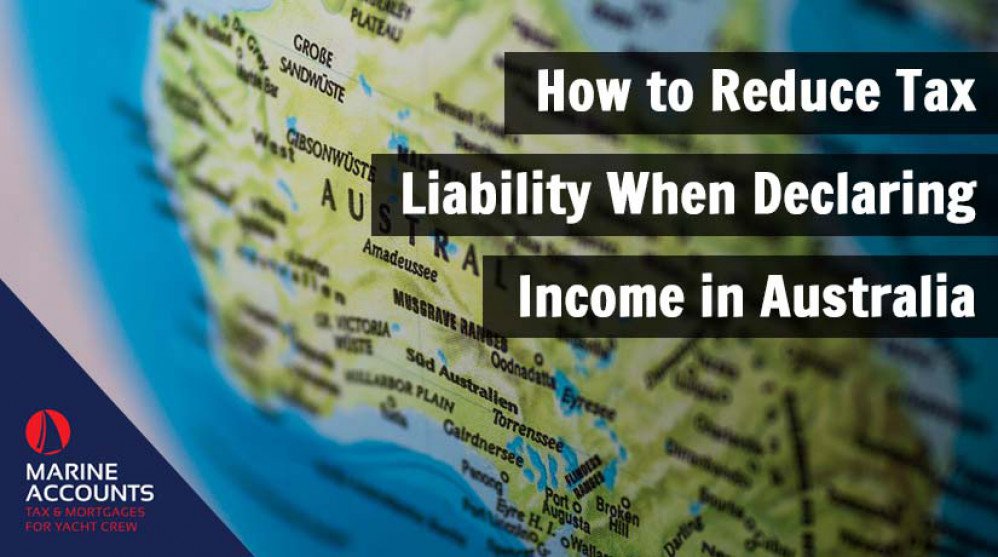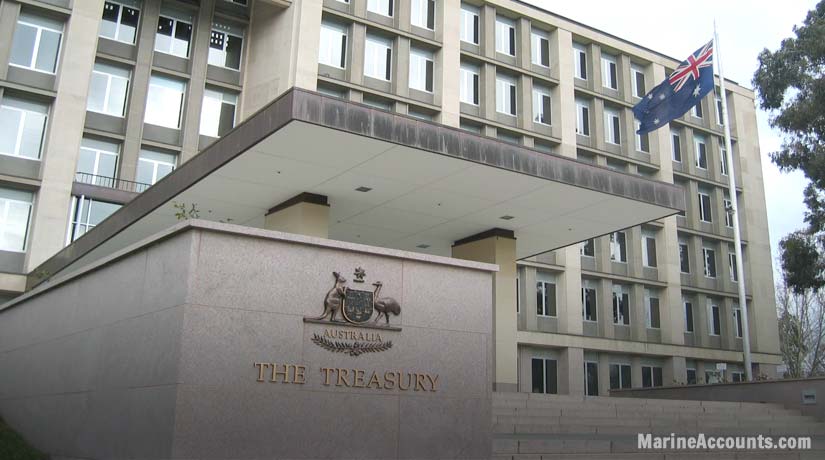How to Reduce Tax Liability When Declaring Income in Australia
- Authors
-
-

- Name
- Patrick Maflin
-

Image source: https://pixabay.com/photos/travel-australia-planet-wanderlust-2273232/
With the latest significant update to Australian tax residency testing coming in 1936, Australian crew are now beginning to realise the difficulties faced in relinquishing your status as tax resident.
As it stands, if your Father was born in Australia, you will remain a resident for tax purposes until the point at which you have established a permanent home elsewhere in the world.
Maintaining status as a tax resident means that you are obliged to declare and pay tax on your worldwide income, including your salary from yachting.
With this fact in mind, we are increasingly being asked the question “What expenses can I claim to reduce my taxable income?”.
In this article, we give an overview of the types of expenses you can claim in order to reduce your tax liability.
Read on to find out more or click a jump menus below to skip to a chapter that interests you.
Chapters
- Work Related Expenses
- Self-Education Expenses
- Eligible Courses
- Eligible Expenses
- Speak to Us or Comment!
Work Related Expenses
The Australian Taxation Office (ATO) will allow you to claim a number of expenses related to the performance of your duties.
In order to qualify to be claimed to, the expense must meet the following criteria:
- The money must have been spent on a product or service you used personally and were not reimbursed for by your employer.
- The need for this expense must have come about as a direct result of your duties.
- You must hold a receipt, invoice or other form of record to evidence the payment.
Expenses that meet these criteria may fall in to certain categories which the ATO have identified as the most commonly incurred and claimed:
- Travel Expenses – If required to pay your own flight, train, taxi or ferry to reach your new vessel, an interview or other engagement directly related to performing your duties this will be considered an allowable expense.
- Clothing, laundry or dry cleaning – If you are required to purchase clothing for your uniform or pay or your own laundry, this expense can also be claimed.
- Tools & Equipment – Any equipment you purchase to assist you in performing your duties will also be eligible to be claimed as an expense.
Whilst the ATO has covered these categories broadly, they have also identified some additional expenses more specifically as follows:
- Books – Any books you buy related to your duties or the industry can be expensed.
- Mobile Phone Expenses – Call charges incurred in specific relation to your job or job search can be claimed.
- Glasses or Contact Lenses – Any eyewear you need and use whilst working can be claimed as an expense.
- Income Protection Insurance – This type of insurance covers loss of income due to sickness or injury and can be claimed as an expense.
- Seminars & Educational Workshops – You can claim an expense for any job-related seminar, class, conference or workshop which you pay for out of your own pocket.
- Memberships – Any Union, Magazine or other work-related memberships and subscriptions can be claimed against your employment income.

Image source: https://commons.wikimedia.org/wiki/File:Australian_Treasury.JPG
Self-Education Expenses
Whilst the expenses described above must be incurred directly in relation to the performance of your duties, the ATO will also allow you to claim expenses related to educating yourself in order to be able to perform your duties.
These expenses must be related to your current employment.
Eligible Courses
You may be able to offset the full cost of any relevant courses against your taxable income. In order to do so, the ATO have determined that the course must meet the following guidelines:
- The course must improve specific skills or knowledge which you use in order to perform your duties and will improve your performance.
- The knowledge or skills you gain should have a realistic chance of increasing your opportunity for promotion or a higher level of income moving forward.
You can’t claim for expenses which will allow you to move in to new employment. For example, a Stew can’t claim for course which will allow you to move in to employment as a Deckhand.

Image source: https://images.pexels.com/photos/196639/pexels-photo-196639.jpeg
Eligible Expenses
Whilst many of the expense which are allowable in relation to your self-education are similar to those which the ATO will allow you to claim in relation to your employment, there are some additions to the list which can be found below:
- Accommodation & Meals – If required to spend a night away from home, expenses for food and accommodation can be claimed.
- Equipment Repairs – If your tools or equipment are damaged whilst undertaking a course, any repairs can be claimed as an expense.
- Parking – Any parking charges incurred in relation to your course attendance can be claimed.
- Stationery – Stationery and office equipment which you require can be claimed as allowable.
- Student Union, Services & Amenities – Any costs related to your registration as a student can be claimed.
- Journals – If you incur the cost of accessing journals, trade magazines or academic reports needed in order to complete your course, you can claim these as an expense.
The above lists show that the expenses you can claim as an Australian tax resident are extensive and whilst the residency tests may be unforgiving, the ATO will give you every opportunity possible to reduce the total taxable income you declare.
Whilst some seafarers have attempted to lodge their Australian tax return alone, the only way to be truly certain that you have minimised the tax that the ATO can claim from you is to keep accurate records and consult with a professional accountant.
Speak to Us or Comment!
If you have any questions around the information included in this article, leave a comment or contact us by email.
Liked this article? Try reading:
Australian Taxation and Yacht Crew - A Tough Relationship
Any advice in this publication is not intended or written by Marine Accounts to be used by a client or entity for the purpose of (i) avoiding penalties that may be imposed on any taxpayer or (ii) promoting, marketing or recommending to another party matters herein.


